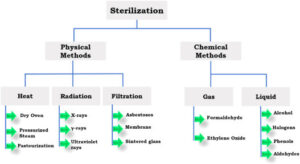Cosmed Group has been anticipating increased scrutiny on the tree nut industry for quite some time. The FDA has been showing interest in raw agricultural commodities for several years. Under the marketing order with the USDA the domestic almond industry has been subject to mandatory pasteurization rules since 2007. The FDA was closely involved in that effort. Meanwhile the spice industry was subject to a risk assessment that was announced in April of 2010. Other commodities have been similarly analyzed. In the tree nut industry, thus far the FDA has limited their activity to responding to outbreaks.
That’s about to change.
On July 18, 2013 the U.S. Food and Drug Administration announced that it will be conducting an assessment of the risk associated with eating tree nuts. The Risk Assessment is intended to quantify the public health risk associated with tree nuts potentially contaminated with Salmonella. This assessment will also evaluate the impact of risk based preventive controls on the threat of human salmonellosis arising from eating tree nuts.
A webinar was held by FDA to explain the purpose, procedure and anticipated output from the Risk Assessment. Following the formal session, the FDA accepted questions from participants. The event was recorded and is availableonline. The presentation from the webinar without the recording is available here. More information about the risk assessment is available at the FDA’s Risk and Safety Assessment webpage.
It has been known for some time that tree nuts can be contaminated with human pathogens. Furthermore, the number of outbreaks the industry has experienced would be hard to ignore forever. In the US there have been outbreaks of human salmonellosis associated with raw almonds (2000-2001, 2003-2004), pinenuts (2011) and desiccated coconut (1999). An outbreak of Ecoli O157:H7, apparently traced to hazelnuts in 2011, was the most recent high profile case and since that time we have seen many more detentions of all of the commodities in the category.
The FDA’s Reportable Food Registry (RFR) provided another hint that FDA would be taking a closer look at the prevalence of salmonella and other pathogens in tree nuts. Over the first three years of the RFR, 13% of the primary reports for salmonella were related to nuts and seeds. With that data in hand the regulators were bound to react.
So what is this “risk assessment?”
A participant in the webinar asked whether this study implies mandatory pasteurization. The answer is no, this is simply a study designed to quantify risk. Outside of domestically produced and consumed almonds there is no mandatory pasteurization requirement of tree nuts. However, the person asking the question should be reminded that HACCP rules, where applicable, remain in force. Companies must identify risks and develop appropriate testing and intervention strategies.
Accordingly, Cosmed Group recommends that growers, processors, and manufacturers use validated pasteurization processes to pasteurize all agricultural products. H2O Experess™ steam pasteurization has been approved in certain packaging for almonds and has been validated on other tree nuts. For products to be consumed in the U.S. our propylene oxide process is effective at controlling salmonella. While this assessment does not imply mandatory pasteurization, times are changing and regulatory scrutiny of your products and your facilities will continue to increase.
This Risk Assessment was announced via a Federal Register Notice on July 18, 2013. There is a 90 day public comment period which expires on October 16 of this year. During this time interested parties have the opportunity to submit data to help the FDA close data gaps that have been identified and explained. Cosmed Group will be submitting comments regarding the effectiveness of moist heat and chemical pasteurization technologies. Where these controls are properly applied they are known to significantly reduce populations of salmonella and other human pathogens. Our comments, to the extent appropriate for this venue will also address the state of pasteurization process validation science.



